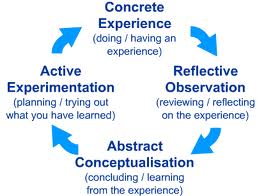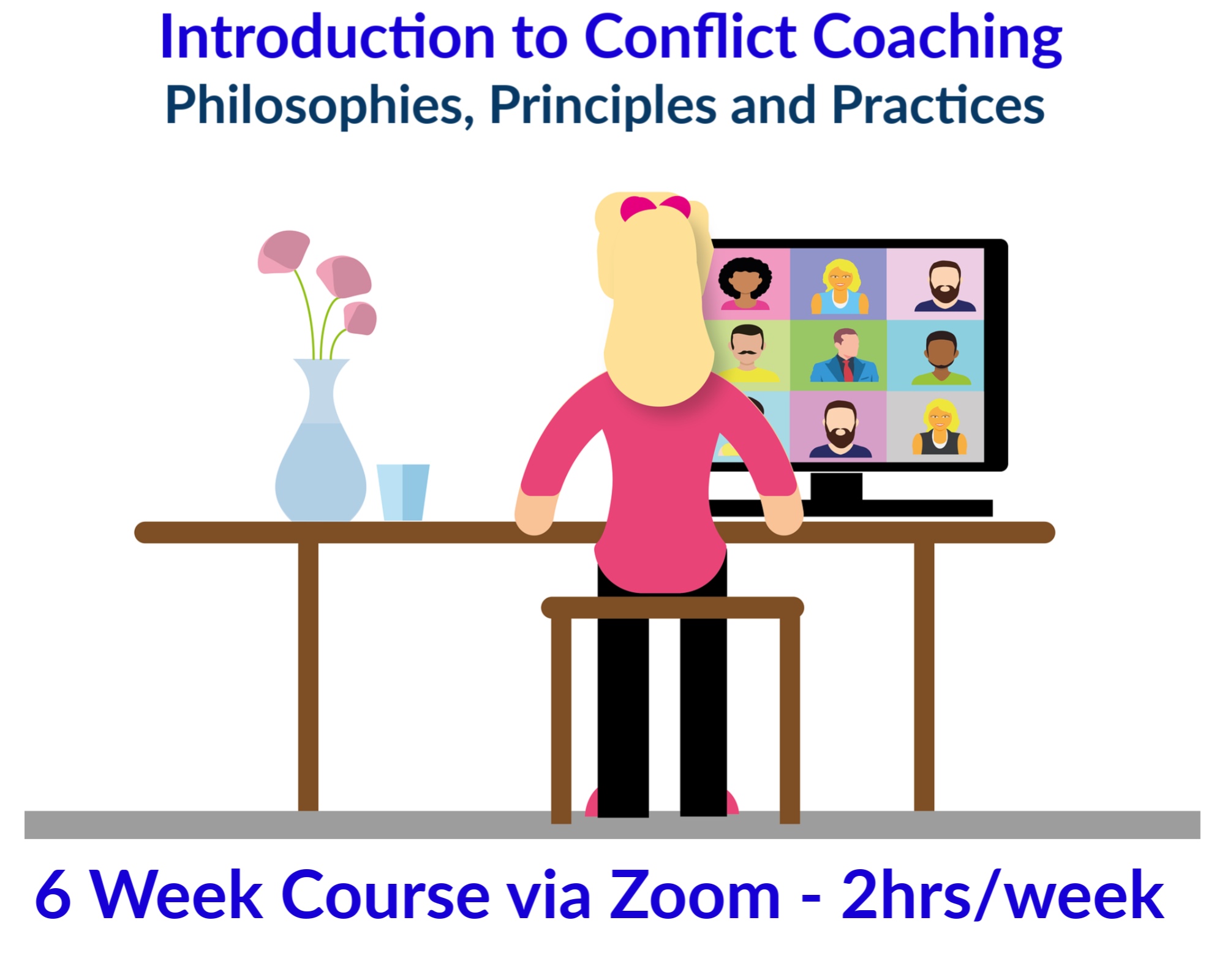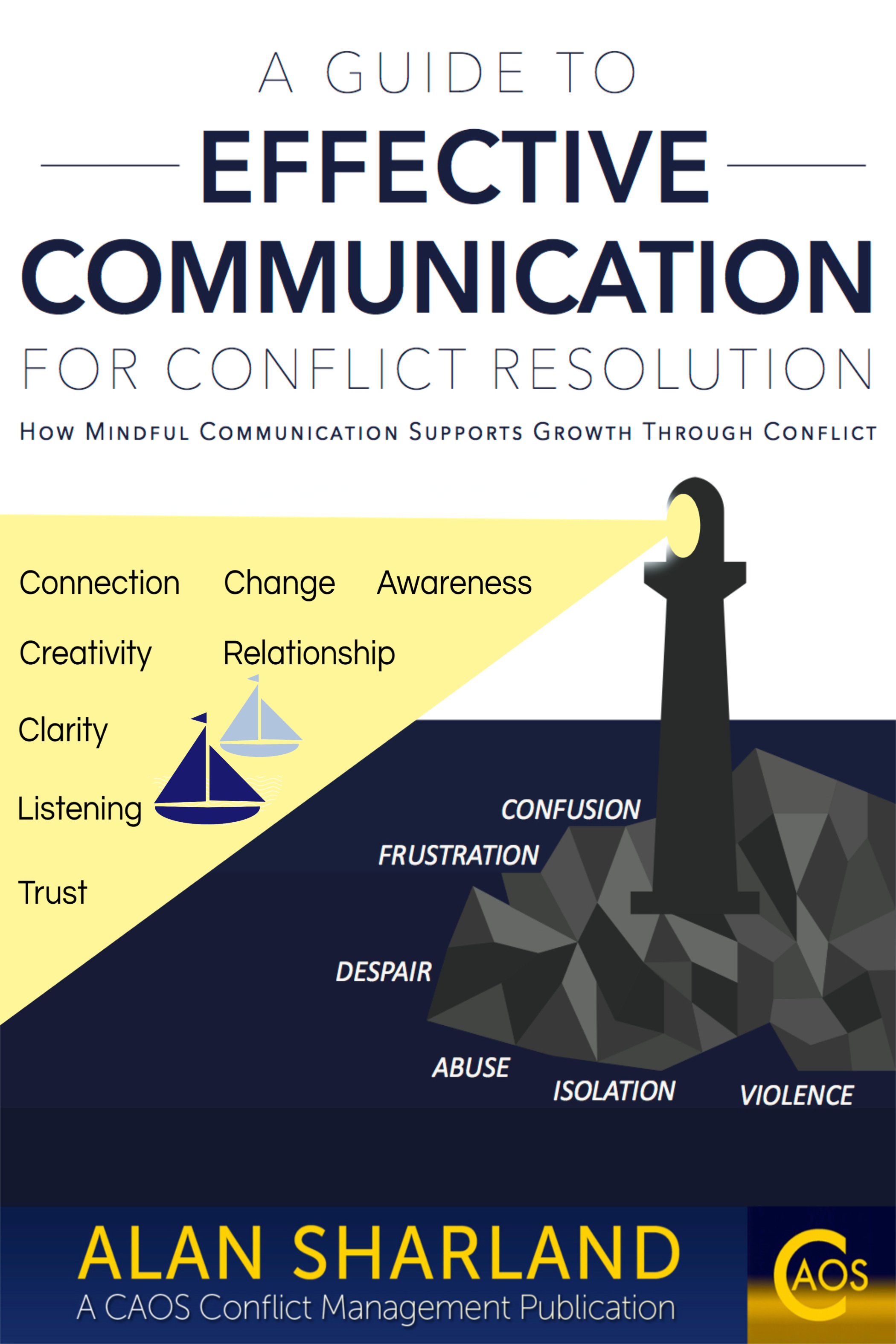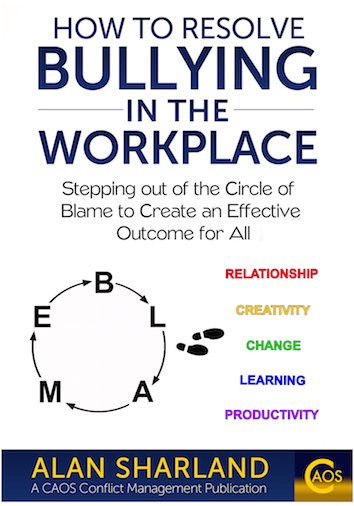Contact CAOS Conflict Management on 020 3371 7507
Mediation Training in the CAOS Model of Mediation
This page provides an explanation of the CAOS Mediation training certification in the CAOS Model of Mediation provided as an outcome of our 6-day Mediation Skills Training Course, and a comment on the present world of mediation 'qualifications' and 'accreditations' and some of the misunderstandings that exist about it - by Alan Sharland, Director of CAOS Conflict Management.
Next course:
Dates to be arranged
Training is held at Key House, 106, High Street, Yiewsley, Middlesex UB7 7BQ (within London Oyster zones in London Borough of Hillingdon).
All days are from 10.00am - 5.00pm and tea/coffee is available from 9.30am
Additionally you can read this post on 'Mediation Accreditation - Red Herring, Rip Off or Real Sign of Quality?

One of the pitfalls that arises for a lot of people who attend training in mediation skills is that after the course is over it is not always clear how the trainee starts to practise as a Mediator.
Sometimes the mediation training organisation has a ‘register’ or a 'panel' for trainees to join, but being on that register doesn’t guarantee the trainee will get work once trained.
When I worked as Director of Hillingdon Community Mediation we would often be approached by people who said they were ‘accredited’ mediators and wanted to mediate for us because they weren’t getting practice following their training. And this has continued to happen since I set up CAOS Conflict Management in April 2011 to the extent that I've had to ask people not to contact us for that reason on our enquiry page.
To me that didn't make sense.
If these Mediators were 'accredited' didn't that mean they already had substantial experience of working on cases and were therefore already getting mediation work?
It seems not.
And for me, this is a concern about the impression gained by many people wanting to train to become mediators who often believe that 'accreditation' by itself leads to work in the mediation field.
In fact it doesn't guarantee anything, nor does it give an 'advantage' in looking for work.
As with any business, marketing is what leads to work.
Providing an excellent service when doing this work leads to a good reputation.
Development of a good reputation leads to continued business.
If someone attends a CAOS Mediation training course they start, immediately after the course, as a Practitioner, having received our Mediation Practitioners Certificate This means they have attended our mediation training course, but are not presently experienced. We would not employ people to work under the CAOS name at this stage as we only employ experienced mediators.
After a Practitioner has trained and worked on at least 10 cases, over a period of at least 18 months and has continually reviewed their practice at least every 3 months via one of our recognised support sessions or training events, they will then become an Accredited CAOS Conflict Management Mediator. If they wish to they can then become an Associate of CAOS Conflict Management, in which case we may then pass work to them when clients come to us for mediation.
But, having trained with us, we are not saying that people have to attend our support sessions or training events or be accredited by CAOS to be able to get mediation work. As mentioned already, getting work is down to marketing. If practitioners wish to continue to attend CAOS Conflict Management support and training events after they train with us they will, of course, be welcome. But we are not wanting to suggest to people who train with us that they have to do this to be able to work as a mediator. They don't. Back to marketing for that one again.
The wording of some mediation training organisations' literature suggest that this is a requirement before a mediator can get work. It isn't. Once trained, you can start to market yourself to get work. But it is your responsibility to do so, and your responsibility to review and update your practice in whichever way you choose.
Unfortunately, some mediators say they are accredited, when, more accurately, they have attended an accredited course.
The two are not the same.
At CAOS Conflict Management we believe accreditation can only be gained after substantial experience.
If you are wanting 'accreditation' straight after the course, I guess our mediation training course is not for you. We will give you a Practitioners Certificate, but this will be an indication that you have put a lot of hard work in over a 6-day course to learn mediation skills.
But that certificate will not be what gets you work as a mediator, nor will not having it prevent you from getting work. For that you need to market yourself - via a website, blog, twitter page, LinkedIn profile, facebook, leaflets, advertisements, talks etc.
Many accredited mediation courses are accredited by non-mediation bodies. These bodies accredit the policies, framework and methodology of the training, not the mediation-related content of the course itself, nor place an expectation on the length of the course.
Please CONTACT CAOS if you have an enquiry about our mediation training or other services. Tel. 020 3371 7507
Mediation Training Course Accreditation?
Please be aware of some 'cloudiness' on this issue which we hope our video and links below will help to make more clear.
Please watch this video (5mins 30s) to see our view on accreditation in relation to our mediation training course...
....If, after watching the video above you'd like to read more about the topic of accreditation, or 'qualification' in the mediation world, see also these articles:
Click Here to get the 'low down' on this ambiguous issue in the mediation world.
Alternatively, read this post on 'Mediation Accreditation - Red Herring, Rip Off or Real Sign of Quality?
And finally this very succinct article by Tammy Lenski, a prominent practitioner of mediation as well as author and trainer in the USA where the same 'ambiguities' arise as in the United Kingdom:
You Say You're A Certified Mediator. Says Who? Note the difference between what Tammy says....that of being a 'certified' mediator and that of having a certificate to show completion of a particular training course. There are few situations in which a mediator has a status of 'certified'. Please be clear that you are aware of the difference when choosing your training course. Similarly confusions arise for the term 'qualified'.
At CAOS we provide the CAOS Mediation Practitioners Certificate to attendees who complete our training course.
So how does CAOS do Mediation Training?
1. Our course has been developed out of direct experience of mediation practice over a period of 20 years – providing a generic training enabling mediators to work in a wide range of fields (we know this because we've worked in these fields) including:
- Community (neighbour dispute) mediation
- Workplace mediation
- Special Educational Needs disagreement mediation
- Family dispute mediation, including separation mediation or divorce mediation
- Homelessness mediation
- Student complaints mediation
- NHS Complaints Mediation
- Group dispute mediation
2.Our mediation training is underpinned by a set of 6 Philosophies and 9 Principles of Practice that form the bedrock of all of our mediation practice. This simple but highly effective framework enables a clarity of practice that helps to give confidence to the trainee to work in any field of dispute after the course is over.
3.Our course has a maximum number of 12 trainees and is experiential and interactive, involving group work, pair work, role play, relevant games, reflective learning with little theory or lengthy handouts. We begin as we mean to continue - through practice - review - learn - improve - practice - review - learn - improve.
You will start practising the skills from Day 1 and will then review and improve them throughout the course .....and will continue to do so throughout your career as a Mediator, using the 9 Principles and 6 Underlying Philosophies as your support and benchmark.
We don't believe there's any such thing as 'the finished article' when speaking of mediators.
Mediation is a discipline that needs to be reflected on and worked at continuously.
4. Training in the CAOS Model of Mediation has been provided to a wide range of organisations including:
- Hillingdon Community Mediation (over 150 people trained in our approach over an 11 year period)
- Brunel University – staff trained as mediators to provide mediation in student complaints
- University of Plymouth – staff trained as Mediators to provide mediation in student complaints
- Herts Young Homelessness Group – staff trained to provide mediation for young people and their parents/ carers when they are already homeless or at risk of becoming homeless due to family disputes.
- Lewisham Action for Mediation Project – mediators trained to work in community mediation such as neighbour disputes and other difficulties.
- Bedford Borough Council - mediators trained to work in community mediation, mainly neighbour disputes
- The Bridge, Leicestershire - a housing support organisation that has had many of their mediators trained by us for work in the area of homelessness mediation.
5. Feedback about the training includes the following comment:
"This six day course was a revelation. On the first day I came to appreciate how far-reaching a mediator’s approach to dealing with conflict could be.
The trainers were extremely well organised and each day there was a careful balance of activities which progressively built on the previous session’s work. The sessions varied, but they were characterised by intensity, warmth and at times, a good deal of laughter. This was not an easy course; the challenges involved in working outside one’s usual mode of operation were considerable, but the upbeat attitude of the trainers and the calm and supportive atmosphere they created meant that I was free to work outside my comfort zone in developing an approach to assisting others deal with their own situations.
I highly recommend mediation training to anyone who wishes to gain an insight into conflict and ways of enabling individuals in situations of conflict find meaningful resolution for themselves. In the process, you might just find your own approaches to dealing with personal and professional conflict are re-evaluated and consequently enhanced.
Dr Mary Richards - Subject Leader for Drama, Brunel University - trained in the CAOS approach to mediation in 2009
We use an experiential learning approach to our mediation training rather than a 'lecture' approach:

6.CAOS also offers a tiered level of support both before and after training to help the trainee plan and develop their mediation practice. This could be just consultation to help prepare for the challenges involved and follow up support after the course, or it could include building a website for the trainee or helping them to build their own and helping them with marketing, design and social media support to help them ‘hit the ground running’.
This approach applies whether we are providing training for an individual or an organisation. See below for details of what we offer as additional support for organisations.
7. Help with Getting Started as a Practising Mediator
After completing their mediation training, CAOS Conflict Management also supports the newly trained Mediation Practitioners via support in developing their business and marketing and if needed the setting up of systems to manage their work and policies that inform an effective mediation service which are in keeping with a mediation 'ethos'.
8.Links to the network of CAOS trained mediators for mutual support. We will offer regular Support Sessions and Themed Training Evenings, usually held at Brunel University but we also offer them online via Skype and Google hangout, or one-to-one on FaceTime as well. At Support sessions, CAOS trained mediators come to discuss their case experiences in order to reflect on them and share their learnings with others. At Themed Training Evenings we look at a particular theme within mediation practice in order to learn and improve our understanding of the application or relevance of the theme. We also have role play practice evenings from time to time.
The preparation, marketing, intake of cases, development of administration policies and procedures that fit with mediation practice is a challenge that can’t really be included in a training course because the context and aims for each practitioner are different.
But the underlying thinking behind each of these has to ‘walk the talk’ of mediation, or clients will soon feel confused and dissatisfied. CAOS can draw upon 21 years of experience of this to help newly trained mediators structure their practice in a way that works.
9.Once a CAOS trained mediator has started to gain practical experience they are then given access to further training for instance, to become Conflict Coaches and even to become involved in training as a Trainer for CAOS Conflict Management.
You may have realised from the above that we do not just ‘train mediators’:
- We help people to consider their options for getting involved in mediation,
- We train them to become effective conflict management professionals who can work in any field of dispute, complaint, relationship breakdown,
- We help them market their practice,
- We provide and continually develop a network of practitioners who are passionate about developing and improving their skills and learning in this challenging field, recognising that we continually need to challenge ourselves and increase our self-awareness in order to improve the quality of the service(s)we offer.
- We also provide opportunities for people to grow and develop the range of skills and practices they have in order to support their career in conflict management.
If you would like to train in the CAOS approach to mediation, please CONTACT CAOS to discuss your interest or telephone us on 020 3371 7507.
Are you interested in CAOS Mediation Training for members of your organisation?
CAOS provides consultancy and support for organisations taking up its mediation training in integrating mediation into their complaints procedures, disciplinary and grievance procedures, staff management procedures, client/professional relationship management etc.
We also support the ‘selling’ of the idea of mediation within an organisation, helping to get across the benefits, ethos and ‘message’ of mediation to colleagues who may not be directly involved but will be affected by its introduction.
We can even manage the service for you if you want! This is sometimes preferred instead of establishing 'in-house' management of the service.
Please visit our in-house mediation page for more information about this part of our service.
Return from CAOS Conflict Management Mediation Training to Home Page
Join our Online course:
An Introduction to the Philosophies, Principles and Practice of the CAOS Model of Conflict Coaching - Click this link to find out more
A Guide to Effective Communication for Conflict Resolution - How Mindful Communication Supports Growth Through Conflict - available on Amazon in paperback and for Kindle.
"I think you put together so well all the essential components of
conflict transformation in a way which people can relate to and
understand. A brilliant book and I will recommend it everyone!"- Jo Berry (www.buldingbridgesforpeace.org)
Purchase this book written by Alan Sharland, Director of CAOS Conflict Management, on Amazon:
Some Testimonials about our training and links to other pages about our
Mediation Skills Training Course…..
"Alan provided excellent training for mediators
at Common Ground Mediation which was challenging but also thoroughly enjoyable.
He led us through various interactive exercises to help us reflect on the mediator's role and impartiality. I would highly recommend Alan as a trainer for mediators."
Morag Steven Director of Common Ground Mediation, Edinburgh, Scotland.
"In my 20 years experience as an academic this is the best ‘in-service’ training I have experienced."
Dr Meretta Elliott -Senior Lecturer-School of Arts-Brunel University
This is what Brian Parry, Group Strategy Director at the Government Central Office of Information, said about our course:
"Very challenging but also excellent opportunity to acquire new skills. The skills are useful not just as a mediator but also in other workplace situations and throughout your life. Training is well thought through/structured over 6 days so you have a chance to learn through trial and error.
Really enjoyed the course and thank you to Alan and Susie for their enthusiasm and encouragement!"
And this is what Chantelle Bramley said, who was training for her role as Mediator at The Bridge Housing Services in Charnwood, Leicestershire:
"I really enjoyed the course. It met my expectations and more. I felt that the environment created by Alan and Susie was very relaxed and trusting. I always felt comfortable, and always felt I was able to ask questions no matter how small/silly they seemed. The small group also meant that i got to know people really well, and this made the role plays/activities comfortable and enjoyable. Thank you Alan and Susie!"
Update from Chantelle, 6 weeks after the course:
"Just a quick update, everything's going really well. I've got 16 open cases at the minute, and on average have two appointments a day!"
Would you like to Train to become a Mediator? Click on the link to find out a bit more about our course.
"I feel like this course is infiltrating into all aspects of my life right now! I'm currently really busy managing a team of students and I think I'm a better listener and a more empowering leader because of the course."
"Peace is not the absence of conflict, but the presence of creative alternatives for responding to conflict." - Dorothy Thompson
"It only takes one person to end a war, and you're the one. What a perfect set up!" - Byron Katie


